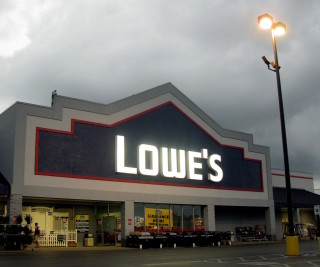
It’s an established part of the big-box retail model that the boxes themselves be custom-built, cheaply constructed, and disposable. If retailers decide that they need a bigger space, it’s cheaper for them to leave the old one behind and build a new one. When Walmart, for instance, opened its wave of new, twice-the-size Supercenters across the country in 2007, it left hundreds of vacant stores behind it. This means that new, successful stores like the Marquette Lowe’s are rarely the locations that are up for sale, and that when big-box stores do come on the market, it’s because they’ve already failed or been abandoned by the retailer that built them. In other words, Lowe’s was saying, it had built a property that, despite generating roughly $30 million in annual sales for the company, had very little value, and because of that, it should get a break in its property taxes.
Lowe’s went a step further. The properties that it offered up for comparison were properties that had been affected by another big-box retail tactic: deed restrictions. When big-box retailers are ready to move on to a new location, they often place these restrictions on the properties they leave behind. Designed to ensure that whoever buys the property won’t become a competitor, these restrictions limit how the store can be used, down to lists of specific items that the new occupant is banned from selling. In effect, they prevent most other retailers from moving into spaces designed specifically for retail, and so depress the values of these properties even further.*
One of the comparables used by Lowe’s, for instance, was a big-box store that, because of deed restrictions that kept out retail, had been partially converted into a go-kart track—a much less valuable use for that property. Marquette appealed the ruling, but the Michigan Court of Appeals sided with the tax tribunal, and in Dec. 2014, the Michigan Supreme Court announced that it would not hear the case.
Now, following the lead of Lowe’s, about 12 other large retail chains in Marquette have appealed their own assessments to the Michigan Tax Tribunal. These cases don’t just affect property tax revenue going forward, but can also force towns to rebate taxes already paid. So far, Marquette has had to refund over $1.5 million in taxes, money that it had already collected, allocated, and spent.
Full Article: For Cities, Big-Box Stores Are Becoming Even More of a Terrible Deal | Institute for Local Self-Reliance